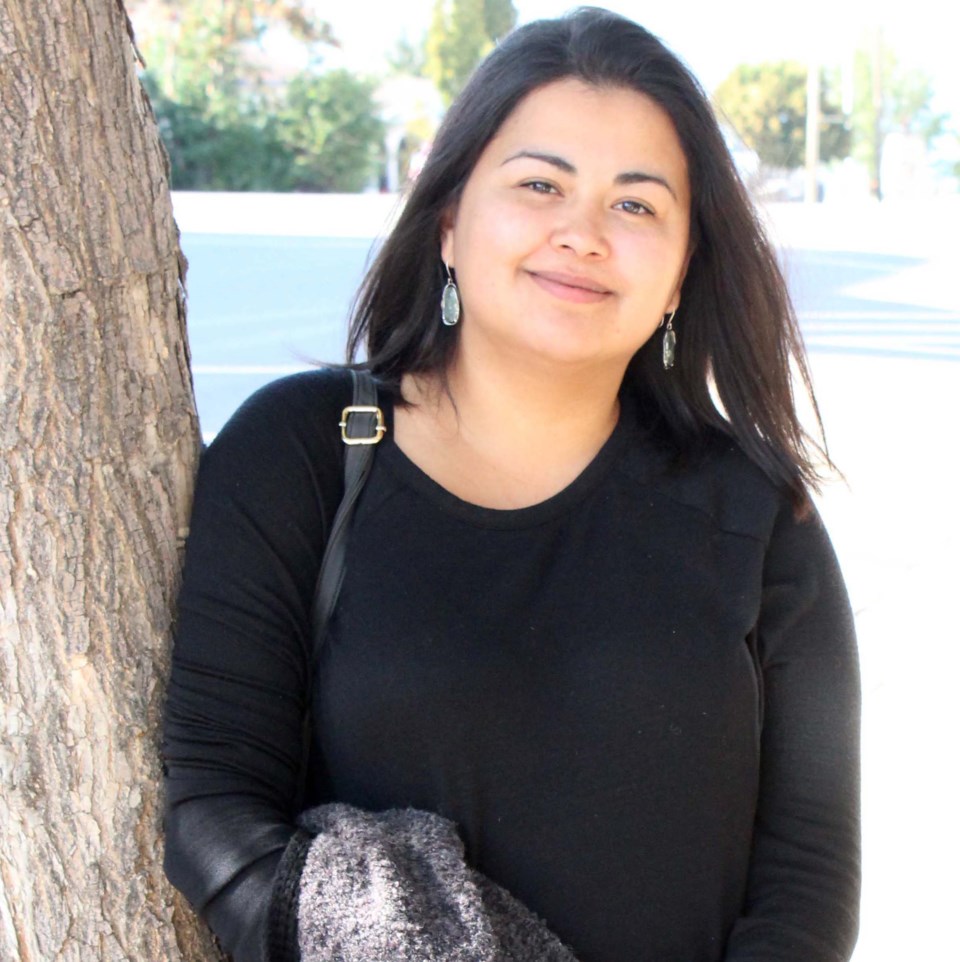“Don’t you ever forget your language, because without it you are nothing.”
There was little prospect of Chantel Quintal forgetting.
The deathbed advice of her 83-year-old grandfather Eugene touched her so deeply his words still resonate today: keeping indigenous languages alive has become a life’s mission for this young mother and aspiring Métis leader.
“If a language goes, so too does a culture,” she says.
It is why she would love to see immersion classes at schools, believing any government serious about reconciliation would encourage them.
It is why she is keen for her sons, Erik, 3 and Iver, 2, to learn Michif – the Cree and Métis French combination that she heard in her house as a child and can speak with “90 per cent fluency” today.
“It was my grandparents’ first language and is so important to me. I can still completely understand it,” she says.
Quintal personifies the adage of looking back to look forward. The quote “if you know from whence you came, there are absolutely no limitations to where you can go” sums up her philosophy as she embarks on a new journey.
In June, the 33-year-old announced she would be running for vice-president of Métis Nation of Alberta Region 1 in the September 18 MNA Election. Her candidacy was striking for two reasons: her age and gender. The other candidates are men.
Over the last few weeks she has been campaigning on four fronts: restoring indigenous language and culture, mental health awareness, empowering youth and supporting seniors. Her husband and campaign manager, Kalon McClarty, has been putting up posters in the region; they show her standing beside a tree, symbolic of her connection with the land.
The roots of that connection are on a Métis settlement in Owl River, where Quintal was raised by her grandparents, Eugene and Florence.
“They had both been born in a tent in the bush, and that’s the only life they knew,” says Quintal.
She remembers Eugene – whom she calls Mooshum (Cree for grandfather) or Dad – hunting and trapping, while she went out with Kookum (Cree for grandma) to set snares for rabbits and pick berries. There was a clear division between the roles of men and women.
“It was a very rustic, traditional existence, living off the land.”
It instilled within Quintal a fierce pride in her Métis heritage that remained undiminished as she followed a traditional educational path in Lac La Biche, taking a bus every day to Vera M. Welsh and later JAWS. It also instilled in her a love for the hamlet.
“It is where I’m from – it’s my home, even though I live in Athabasca right now,” she says.
Her mother, Patsy, still lives here, but her grandparents have passed – Mooshum died at 83, Kookum at 70.
When she was 18, Quintal began a forest technology course at Portage College. Superficially, it seemed an odd choice: forestry was a male-dominated program. However, for someone familiar with the land and who could identify plants it was a perfect fit.
“Forestry is a great area of study for indigenous people,” she says. “It takes them back to the bush. It’s good for their souls and it’s always where I see the biggest smiles.”
It gave Quintal experience of living in a male environment, something that could serve her well in the bruising, sometimes macho world of politics.
After a leadership role in the Aboriginal Junior Forest Rangers, she attended Red Deer College where she got an applied degree in Motion Picture Arts and a diploma in Theatre Studies. She also did a lot of acting, something that had interested her at school.
“Arts is very big in our community,” she says. “It helps our people heal from tragedy, and helps them build self-esteem.”
It was at Red Deer that Quintal met Kalon, another arts and theatre student. She hopes that one day their mutual interest will lead to the realization of a dream.
“Wouldn’t it be awesome to have a youth indigenous theatre in Lac La Biche, where people could put on plays that empower themselves?” she says.
After college, the couple lived in Fort McMurray for three years – Kalon working in the power line trade – before returning to Lac La Biche where Quintal took care of Mooshum. Then they moved to Athabasca.
Quintal’s entry into politics seems a natural step for someone so passionate about her culture; and yet it jars with the introverted side of her nature, the side that baulks at aggressive self-promotion.
Fortunately, when she is speaking at a candidates’ forum, or knocking on doors, or campaigning on social media, another side surfaces, one that is determined to make a noise and ease the pain she sees daily on the faces of her people.
She feels she can help those stuck between worlds – “not being brown enough for Indians, not white enough for whites” – and suffering from the brutal legacy of residential schools, colonialism and attempts to assimilate them in another culture.
She hopes she can be an agent of change and inspire people, especially women and the young, to become leaders. Whatever happens on election night, she is determined to remain a powerful Métis voice — a strength her Mooshum and Kookum taught her.
“I implore people who have Métis cards to be informed and get involved, to come out and vote.”



